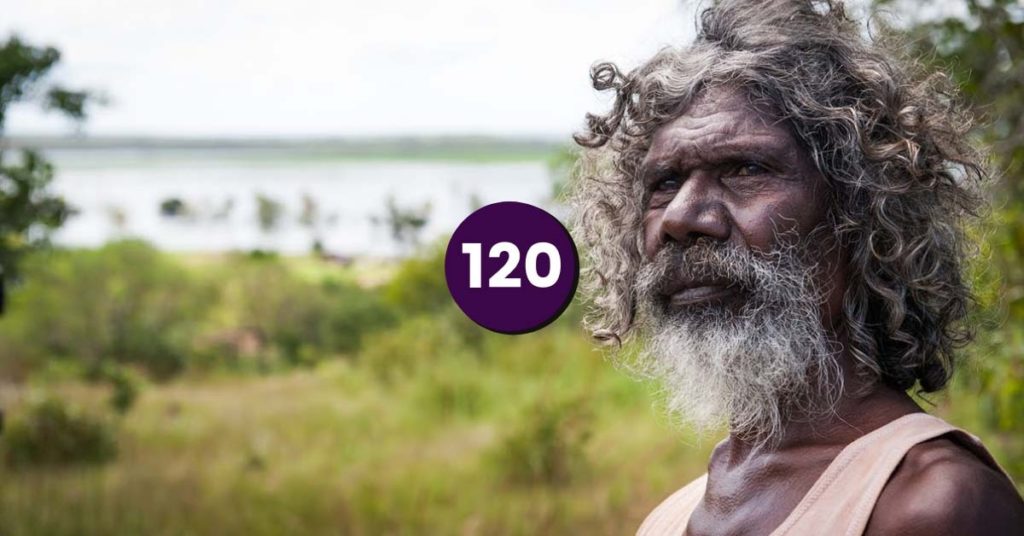We’re celebrating the legacy of Aboriginal Australian actor David Gulpilil. Gulpilil died on November 29th 2021, at age 68, leaving behind him a career of rich performances, despite the many ways the industry underserved him for decades. On this episode, we particularly focus on Charlie’s Country, as a film that was so personal to Gulpilil, and which features probably his best performance.
We also survey Gulpilil’s legacy, both his vital contributions to film, and also how his troubling domestic abuse conviction complicates that legacy. We discuss the issues that arise when representation of marginalised groups is so slim that we start to view the few successful figures as heroes rather than flawed humans.

This episode features Editor-in-Chief Alex Heeney, Executive Editor Orla Smith, and Associate Editor Brett Pardy.
Charlie’s Country (Rolf de Heer, 2013)
Loosely based on some of his own experiences, David Gulpilil stars as Charlie, an Aboriginal man living in Ramininging in the Northern Territory of Australia. He lives in a makeshift shack in a search for privacy from his family who have a house. He has no job and little money, and every aspect of his life is controlled by colonialism: he can’t live the ‘old ways’, but he isn’t appreciated by the white settlers either.
When his doctor informs him he needs to eat better and his gun for hunting is confiscated by the police, he decides to make a spear so he can hunt for better food. When that is confiscated, he decides to drive to the bush to live the traditional ways. But he’s an old and sick man, and a few days of rain leave him extremely ill when his friends find him. He’s sent to a hospital in Darwin — the hospital where his friends his age go to die — where he checks himself out early, and starts hanging out with and buying alcohol for ‘banned’ Aboriginals. He gets arrested, and is sent to prison. When he gets out, he agrees to pass on traditional dances from his generation to young Aboriginal boys, fearing the loss of their cultural identity.
Charlie’s Country is available on VOD and streaming on Kanopy and MUBI in the US and Netflix in Australia
On this episode:
- Related episodes (4:55)
- Remembering David Gulpilil and My Name is Gulpilil (10:08)
- Walkabout, Crocodile Dundee, and The Right Stuff (15:13)
- Rabbit-Proof Fence and The Tracker (21:17)
- Charlie’s Country (27:01)
- Gulpilil’s domestic abuse conviction (36:14)
- Charlie’s Country, systemic issues, and a settler audience (46:59)
- Gulpilil’s performance (1:16:01)
- Another Country (1:25:13)
- The evolution of Gulpilil’s collaboration with Rolf de Heer (1:28:36)
- Conclusion (1:37:16)
Show notes
- Charlie’s Country was 13 on our list of 50 favourite films of the 2010s. See our other choices here.
- David Gulpilil’s performance in Charlie’s Country was one of our picks for the 50 best performances of the 2010s. See our other choices here.
- Read the Tandanya National Aboriginal Cultural Institute and Yolŋu Community & kin’s statement on the use of David Gulpilil’s name
- Read Brett’s interview with Edge of the Knife co-director Gwaai Edenshaw, which includes a discussion about the challenges of making a “pre-contact”film
- Read Nancy E. Wright’s article about Models of Collaboration in the Making of Ten Canoes (2006) in Screening the Past
- Read Alex’s interview with Sweet Country director Warwick Thornton
Related episodes
- Ep. 39: Jeff Barnaby’s Rhymes for Young Ghouls and Blood Quantum (Members Only)
- Ep. 38: Australian westerns and True History of the Kelly Gang (Members Only)
- Ep. 17.5: Performances in Jennifer Kent’s The Nightingale (Members Only)
- Ep. 17: Jennifer Kent’s The Nightingale (Members Only)

